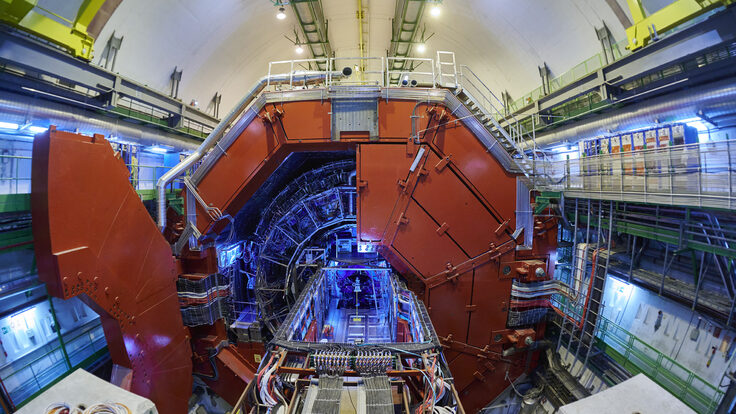 Photo: Reidar Hahn/Fermilab, Candles: Kyle Romberg |
Virtual cake
Celebrating anniversaries of global organizations presents unique challenges and asks for creative solutions. To congratulate the European laboratory CERN on its 50th anniversary, US scientists created a special birthday cake. But CERN employees never got to eat a slice of cake. Instead they received the cake virtually, as an image—appropriate for the laboratory that invented the World Wide Web.
The highly decorated cake represented the many connections that the US particle physics community has with its European partners. Custom-made candles displayed logos of several US national laboratories as well as the National Science Foundation and the Department of Energy. "Candles of Honor" carried the images of Raymond Orbach, Director of the DOE's Office of Science; Michael Turner, Assistant Director for Mathematical and Physical Sciences, NSF; and Robin Staffin, Associate Director of the Office of High Energy Physics at DOE—and they all were afire.
The United States is contributing a total of $531 million towards the Large Hadron Collider and its detectors, which are currently under construction. From building superconducting magnets to producing components for the ATLAS and CMS experiments, many US national laboratories and universities are playing key roles in the LHC project.
Fifty years from now scientists may know a way of transmitting a real cake in a matter of seconds. Then CERN employees can have their cake—and eat it too.
Kurt Riesselmann
Click here to download the pdf version of this article.






